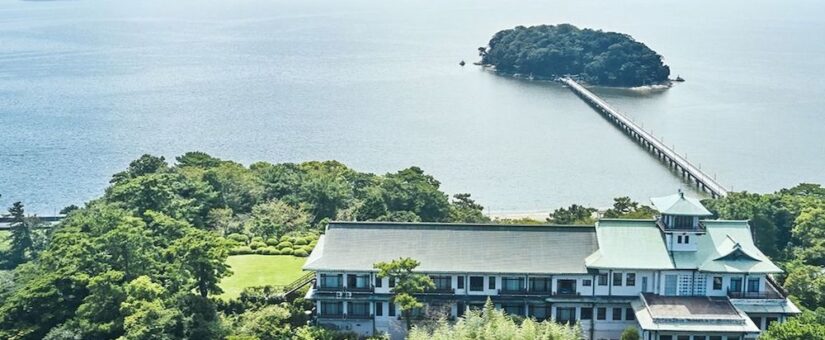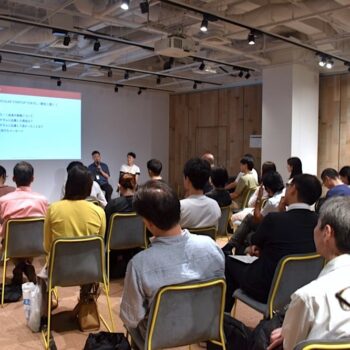
Gamagori City, Harch, and Circle Economy launch circular employment analysis dashboard
- On Oct 15, 2024
- Aichi, Amsterdam, Circle Economy, circular city, Circular Economy, Circular Jobs, Gamagori, Gamagori Data Explorer, Knowlede Hub, Netherlands
On September 30, Gamagori City in Aichi Prefecture (hereinafter referred to as Gamagori City) and Harch, in collaboration with the global impact organization Circle Economy based in Amsterdam, Netherlands, launched the “Gamagori Data Explorer,” a dashboard that analyzes the city’s transition to a circular economy from an employment perspective.
What is the Gamagori Data Explorer?
The Gamagori Data Explorer is a dashboard developed based on the Circular Jobs Methodology created by Circle Economy in collaboration with the United Nations Environment Programme. It analyzes the transition to a circular economy within a municipality from the perspective of employment, identifying the percentage of “Circular Jobs” across all industries and highlighting priority policy areas to enhance circular employment. This analysis marks the first time a Japanese municipality has used Circle Economy’s methodology to examine circular employment. The dashboard can be accessed below.
- Dashboard: Gamagori Data Explorer
- URL: https://circularity-gap.world/gamagori
*What are Circular Jobs?: Circular Jobs, as defined by Circle Economy’s unique methodology, refer to jobs contributing to the circular economy. These include Direct Circular Jobs, which directly support the circular economy, and Indirect Circular Jobs, which contribute indirectly. The circular employment rate is calculated as:
Circular Employment Rate = (Direct Circular Jobs + Indirect Circular Jobs) / Total Employment within the Municipality.

Background
Since declaring itself a “Circular City” in November 2021, Gamagori City has been promoting circular economy policies. In 2022, the city identified seven focus areas in its action plan: education, consumption, health, food, tourism, mobility, and manufacturing. Gamagori has also hosted events such as the “Circular City Gamagori Challenge Festival” and implemented pilot projects in collaboration with local businesses to drive the circular economy forward.
While many initiatives have emerged over the past three years, the city has faced challenges in quantifying the progress of its circular economy policies and determining policy priorities based on objective data. To address this, Harch, working through CIRCULAR DESIGN STUDIO at Shinto Tsushin, collaborated with Circle Economy to conduct an analysis focusing on circular employment.
Key Findings
1. Gamagori City’s circular employment rate is 1.7%.
The analysis revealed that the circular employment rate in Gamagori City is 1.7%, with direct circular jobs accounting for 1.1% and indirect circular jobs accounting for 0.6%. The report also identified the number of circular jobs and employment rates by industry. The service sector had the largest number of circular jobs, followed by wholesale/retail and real estate/leasing. Meanwhile, the highest circular employment rate was observed in the utilities sector (electricity, gas, heat supply, water), followed by construction and services.
2. Sectors with the greatest potential for growth in circular employment include healthcare/welfare, hospitality/food, and transportation.
Industries with a high number of employees but low circular employment rates were identified as having the greatest potential for circular job creation. In this analysis, healthcare/welfare, hospitality/food, and transportation were highlighted as sectors with significant room for growth in circular employment.
3. Key areas for future policy focus include circular education, incentives for job creation, transforming services and manufacturing, and improving indirect circular jobs.
To further promote the circular economy in Gamagori City, priority policy areas include investing in circular education and reskilling, providing incentives for job creation programs in sectors with high growth potential, expanding circular employment in labor-intensive industries like services and manufacturing, and efforts to improve indirect circular employment.
Looking Ahead
Based on this analysis, Gamagori City will utilize the findings to measure the progress of its circular economy initiatives and inform future policy development. The dashboard also makes use of open data, including census and city statistics, which could serve as a reference for other municipalities across Japan.
Circle Economy launches Gamagori case collection on Knowledge Hub
In conjunction with the release of this dashboard, Circle Economy has created a special collection page on their digital platform, Knowledge Hub, which gathers case studies of circular economy initiatives from businesses and municipalities worldwide. This page features Gamagori City’s circular economy policies and local practices.
- Official page: Knowlede Hub – Circular City Gamagori
- URL: https://knowledge-hub.circle-economy.com/gamagori
About Circle Economy
Circle Economy is a global impact organization with a team of international experts based in Amsterdam. The organization offers practical and scalable solutions to industries, cities, and nations to transition to a circular economy. Circle Economy’s vision is to create an economic system where the planet and all its people can thrive. To avoid climate breakdown, they aim to double global circularity by 2032.
- Official website: Circle Economy
- URL: https://www.circle-economy.com/
About Circularity Gap Reporting
Circularity Gap Reporting, provided by Circle Economy, brings together a diverse group of experts and researchers to gather evidence and develop strategies and roadmaps for transitioning to a circular economy at the global, multinational, national, and local levels. It provides various interactive tools to monitor the impact of circular strategies.
- Official website: Circularity Gap
- URL: https://circularity-gap.world/gamagori
About Circular City Gamagori
In November 2021, Gamagori City in Aichi Prefecture declared itself a “Circular City.” With a vision of “Connecting, Interacting, and Expanding: Circular City Gamagori,” the city strives to achieve citizens’ well-being by optimizing the balance of environmental, social, and economic factors. The city promotes circular economy policies across seven sectors: education, consumption, health, food, tourism, mobility, and manufacturing.
- Official website: Circular City Gamagori (in Japanese)
- URL: https://www.city.gamagori.lg.jp/site/circularcity/







